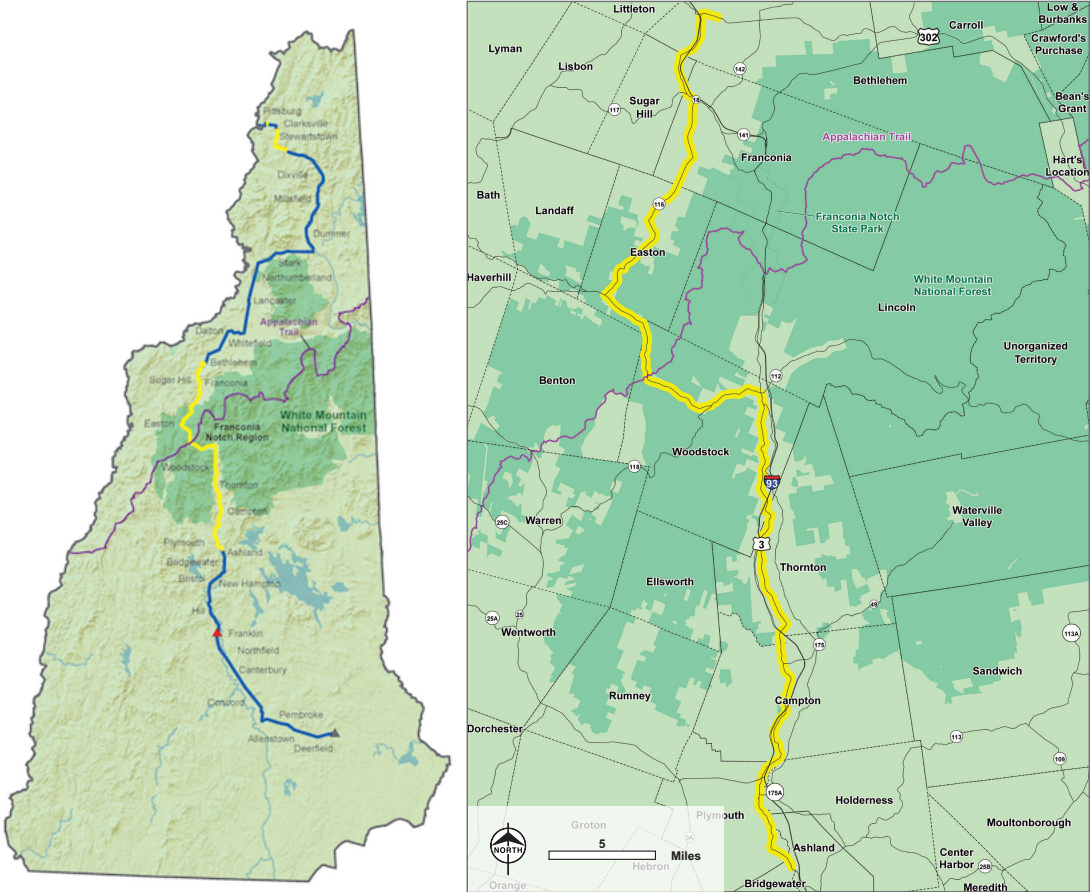Roger Wood interviews Martin Murray, communications manager for Eversource, Catherine Corkery, director of the New Hampshire chapter of Sierra Club and Dan Dolan, president of Northeast Power Generators Association.
The ambitious project may be years away, but the battle is already underway over the massive Northern Pass electricity project in New Hampshire.
If ultimately built, a 192-mile transmission line will be constructed — underground and on towers — from Quebec province through New Hampshire. It would provide some 1,000 megawatts of power to the state and New England from Hydro-Quebec’s water driven hydro-electric plants in Canada.
Plans for the multi-billion dollar project call for a new Direct Current transmission line from the border to Franklin where a converter station would change the voltage into Alternating Current.
From there, the lines would run to Deerfield and into the region’s power grid. Eversource, New Hampshire’s largest utility company, is the prime supporter and partner in the project, citing cost savings to consumers, more than 2,000 new jobs during construction, a $200 million dollar Forward NH fund to support economic development in Northern New England, along with clean energy initiatives, job support and tourism support.
The project still needs federal and state approvals and has already received a Transmission Service Agreement from the Federal Energy Regulatory Committee. More public hearings are scheduled during a public comment period that ends on Dec. 31.
State permits are also required from the Site Evaluation Committee, which plans a review this fall. Also involved in the state permit process will be the Department of Environmental Protection, Department of Transportation and the Public Utilities Commission.
The current price tag for the project is $1.4 billion dollars, based on the planned burial of some 60 miles of cable under the White Mountain National Forest, Franconia Notch, the Rocks Estate area and part of the Appalachian Trail.
Project designers point out that most of the proposed route is within existing rights of way for utility poles, and that the rest have been bought or leased from willing landowners. Roger Wood spoke to representatives in favor and opposed to the project.





